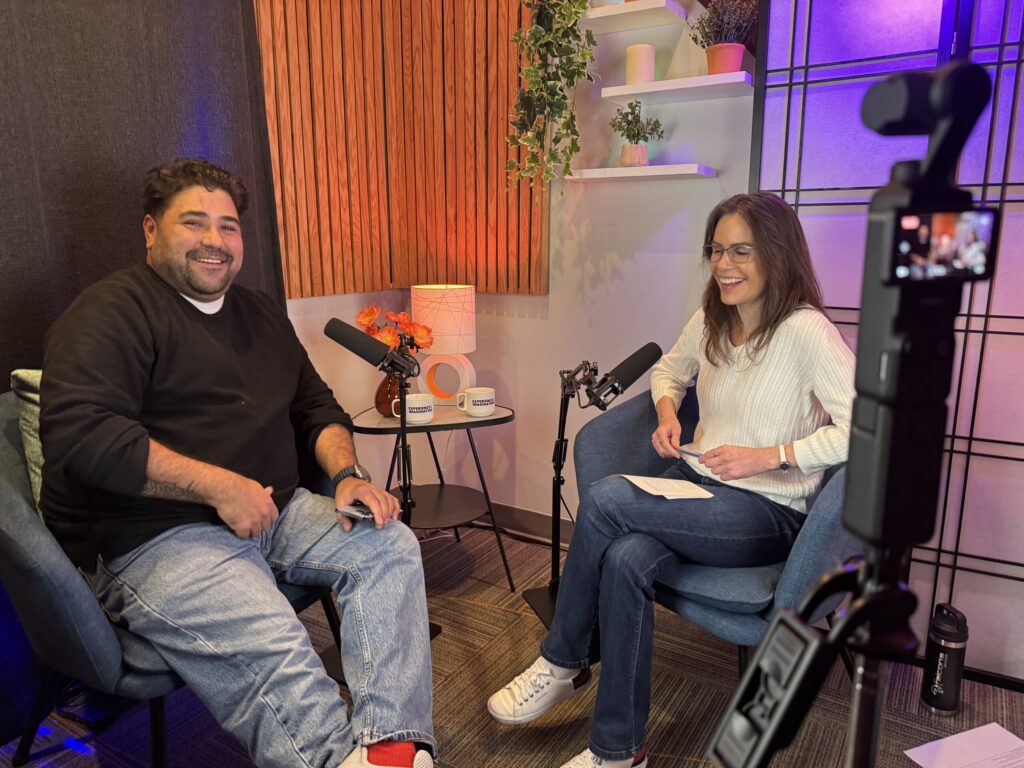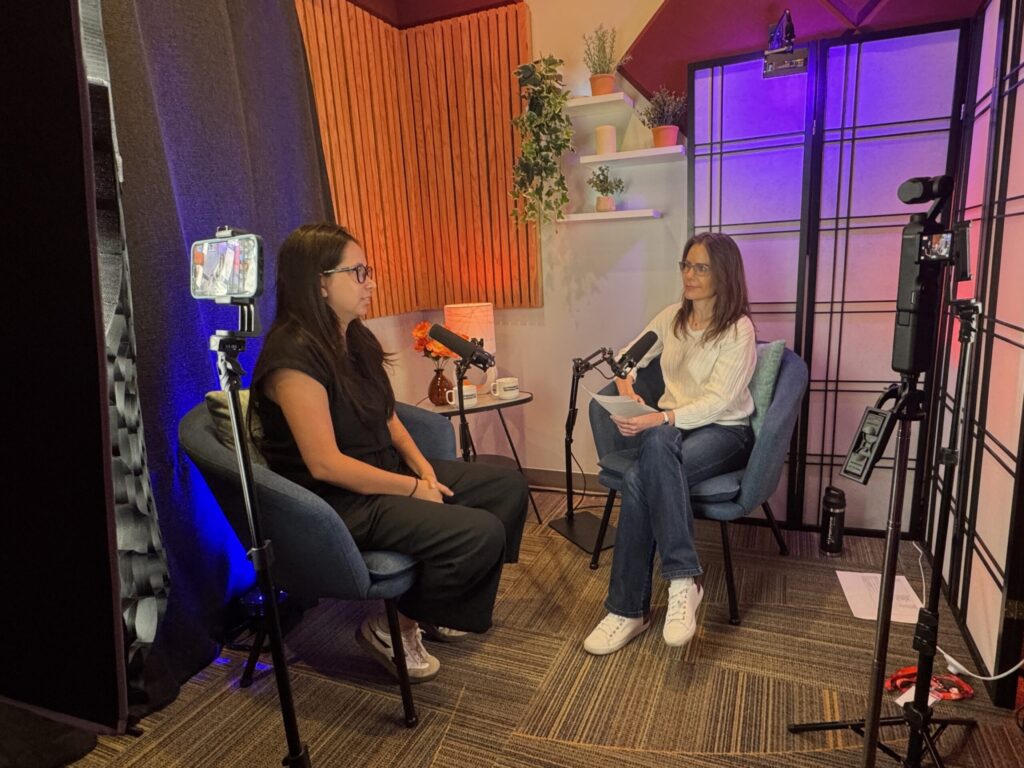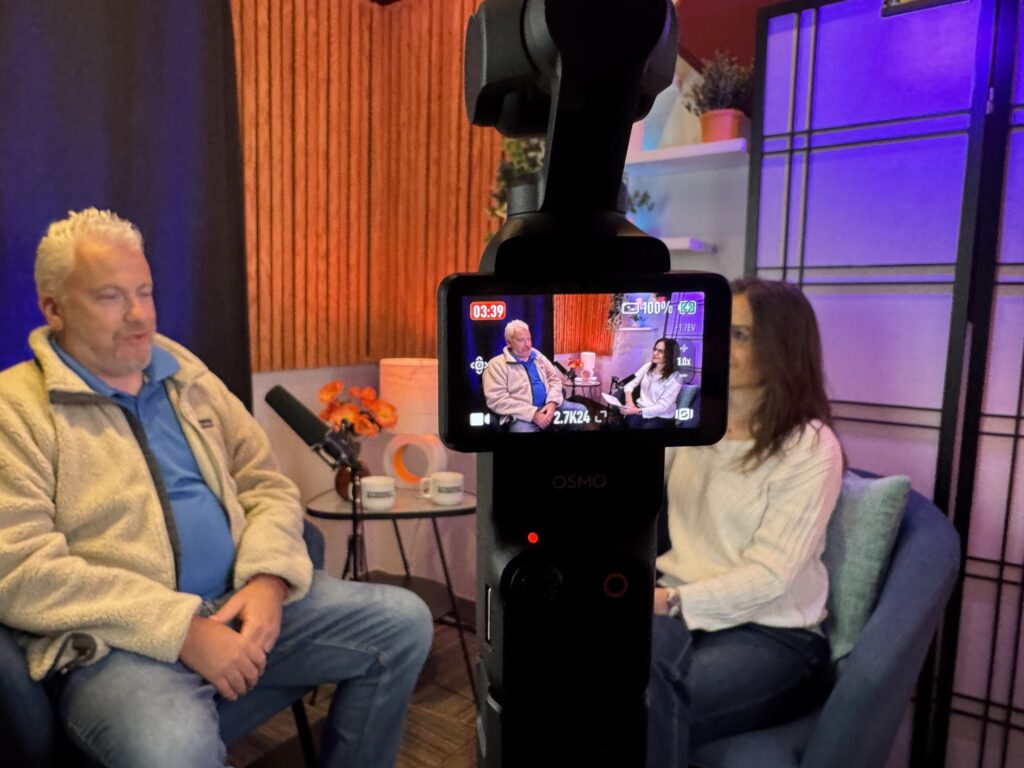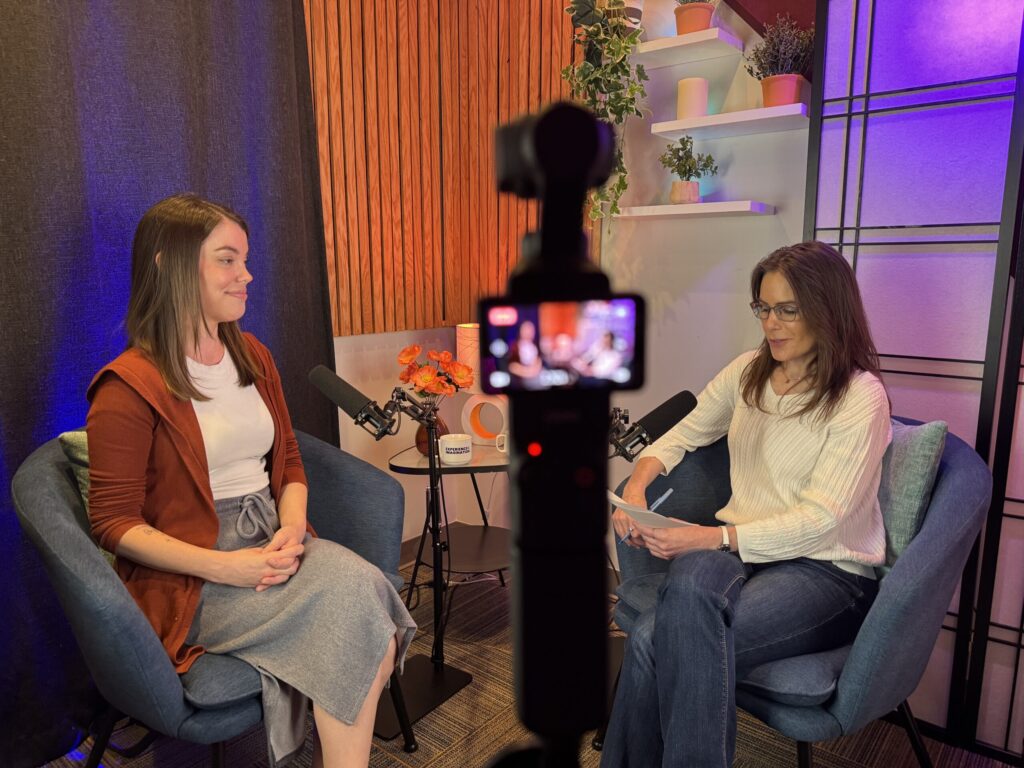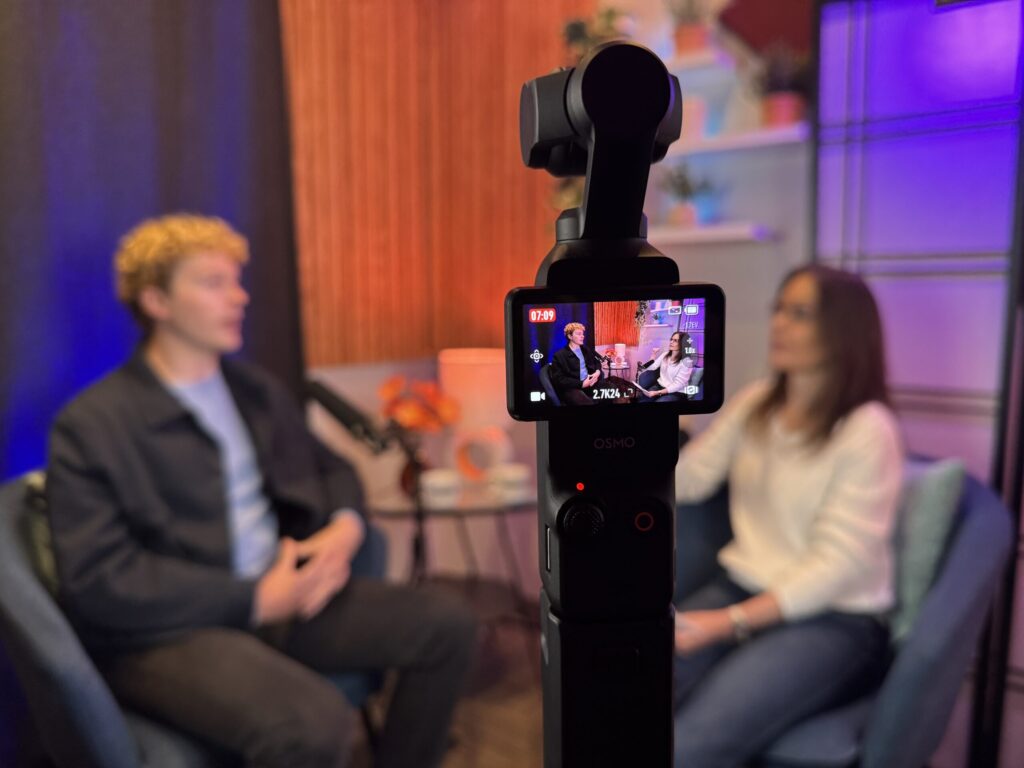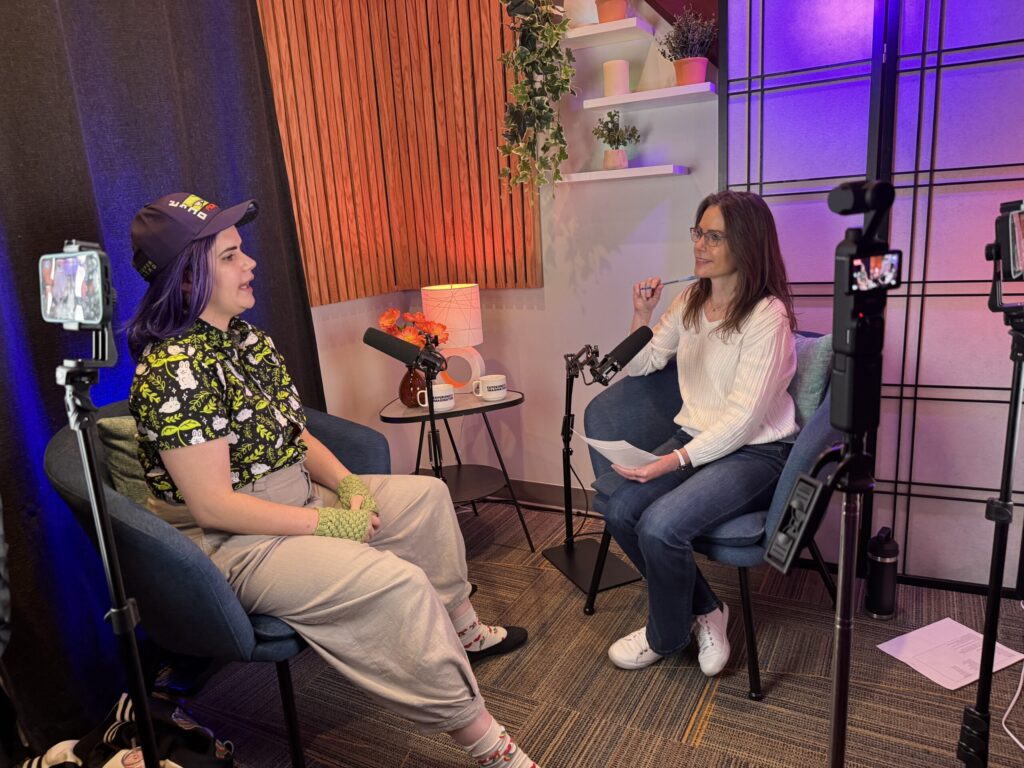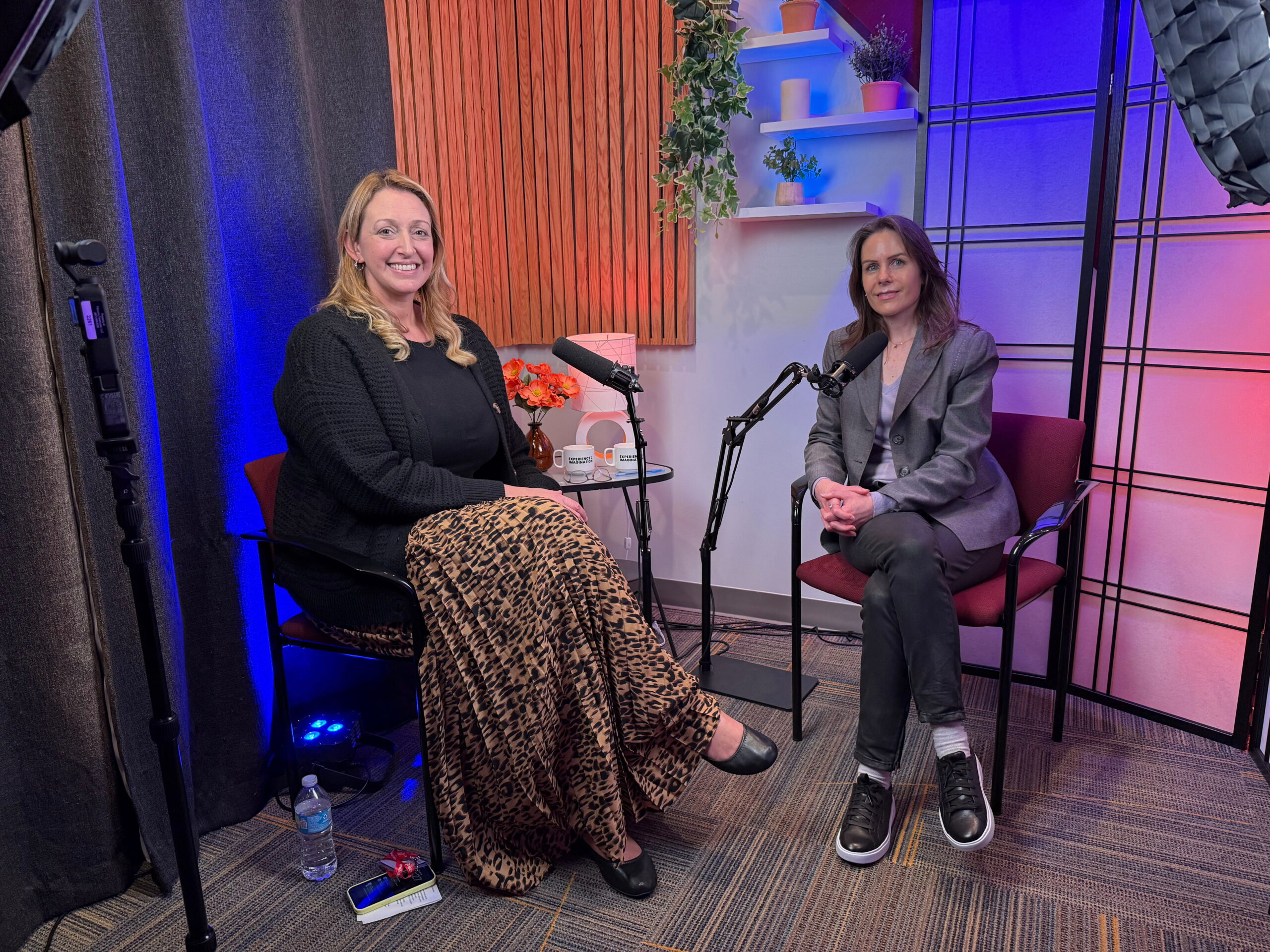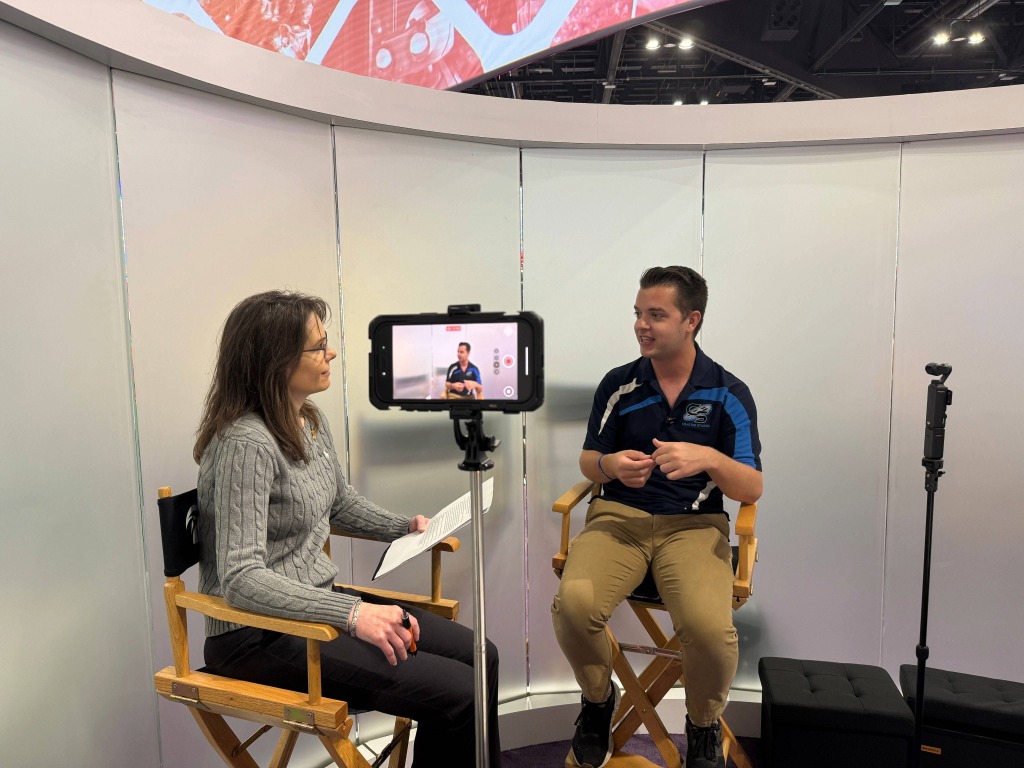Dreaming of a career in theme park design? In this edition of our Foot in the Door series, we’re sharing real stories from our team members about how they broke into the themed entertainment industry. From creative roles to technical positions, we reveal the skills and strategies that helped them turn their passion for immersive experiences into a career. Whether you’re a student, a creative professional, or simply curious, read (or listen) on for insider tips, career advice, and the many paths that can lead to a job in this exciting industry.
What did you want to be when you were growing up?
All I knew is that I wanted to create. I wanted to build. And that took so many different forms. I wanted to be a writer and a musician. And then I found out about software engineering, and I realized that coding is a tool to be able to create anything, essentially. It kind of married this creative side of me with the more technical side. This is essentially what I wanted to be.
What do you think are the most important soft skills someone in this industry can have?
I would say curiosity is a big one. Always stay curious about what other teams are doing, what the greater company is doing, where their minds are, and see where you might be able to fit in. Just really be curious about where your skills could help augment things.
I would also say communication, because you need to be comfortable with saying, “Hey, what are you working on?” or maybe think of ways that you could actually help the team accomplish what they want to help with what you want to do with them. I would say curiosity combined with communication is a great way to flourish.
What advice would you give to someone trying to break into the themed entertainment industry?
From an engineering perspective, I would say always build things—whether it’s in your free time or at your job—that reflect not what you can do, but how you think. All of us have such unique minds, and I think that if you really showcase yourself and your personality in your work, especially in a creative space, people are going to look to you. I always try to put my own personal spin on my work and think of ways that could really show how I think and my personality in my work.
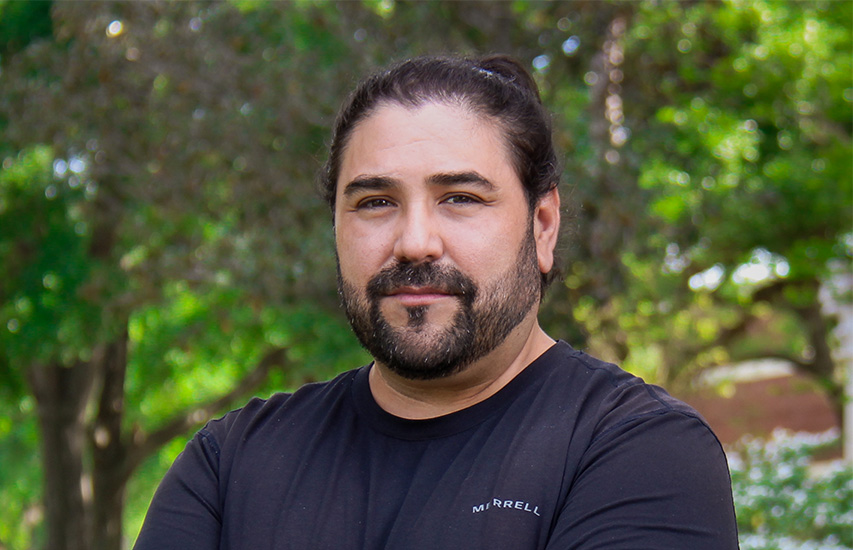
Joseph Labato
Production Supervisor
Tell us about your career before joining the themed entertainment industry.
I used to record music, and that was like my whole bag, but the music industry started declining quite a bit, so I got a little side job. I was working at a coffee shop in LA and still trying to record friends’ bands when I met an actor. Typical Hollywood story—an actor comes in, you become friendly, and he’s like, “Why are you working here? Come work for me.” I was like, “OK, I’ll go do that.” So, I went to work for an actor in a small production
company, originally as the engineer to help with little commercial spots. And then that evolved into, “Hey, you know Pro Tools. Do you think you could learn Avid and Final Cut Pro?” And I was like, “I’ll figure it out. It’s the same thing.” And they’re like, “Hey, since you’re doing that, do you think you can help us figure out this camera?” And I was like, “I’ll figure it out. Let’s go.” And yeah, that kind of evolved into other things.
And then I left and said, “You know what? LA is not working for me,” and I moved to San Francisco. I saw ILM, Lucasfilm was there, and I said, “I’m going to go work there.” I had to take a big step back in my career and start over as a PA again. I started as a runner, and I didn’t care because this is where I wanted to work, and I wanted to be there. I hounded the recruiters, and I hounded people that I met who might have worked there, and then I just kind of wouldn’t let up until they eventually hired me as a PA. I got to work there with some amazing people for quite a few years, which kick-started my visual effects career for about 15 years. And then I landed here and am working in themed entertainment.
What advice would you give to someone trying to break into the themed entertainment industry?
It’s kind of like improv; it’s always “yes, and?” Treat your next opportunity like that—you never know where it’s going to come from. Yes, you might take a job that you don’t really want to do, but it’s in the area that you want to work in. And once you’re there, your footis in the door. Now it’s up to you to show them what you’re made of and show them what you’re interested in. Companies love to promote from within. It doesn’t matter if you come in as one thing—if you get there and do a good job at that one thing, and you say, “I’m really good at doing this. I love the job, thank you. I would love to be a part of this portion of the business,” then people recognize you’re really good at this—maybe you can do that. I would say if you’re trying to break into the industry, don’t not take a job because it’s not 100% what you want to do. The name of the game is getting your foot in the door.
Megan Maher
Narrative Manager
Where did you go to school and what was your degree?
I went to school at Ringling College of Art and Design in Sarasota, and I have a bachelor’s degree in computer animation.
What do you find to be the most important soft skills needed to succeed?
Communication—both written and verbal. Verbal communication is good for conveying ideas, especially at a high level and just getting all the ideas out. Written communication is important if you don’t have the privilege of face-to-face interactions. It’s also needed to document and confirm what that communication was, so there’s no room for interpretation on what the plan is. It’s part of what keeps everything consistent for everyone.
Adaptability is huge. Never settle and become extremely specialized and honed in on only your favorite program, your favorite style, or your favorite type of work. You have to adapt in order to keep working. And I don’t say this necessarily in terms of hard skills like, “OK, well, I’ve got to learn coding, but I also have to learn animation.” You can kind of keep things more or less in the same wheelhouse, but you figure out a variety of ways to apply those skills.
What advice would you give to someone trying to break into the industry?
Personally, I think that everybody should get their toes wet actually working operations in a theme park first. I believe knowing what the day-to-day process of working and operating a theme park is will heavily inform how you design said theme park. Because the frontline workers at theme parks—they are the most patient and, to me, highly skilled and adaptable people out there because of how much things change, how difficult the hours are, and the fact that just being public-facing for all hours of the day means you interact with all kinds of personalities and all kinds of people.
Ana Tellitud Andaluz
BIM Designer
What are the most important soft skills to have in this industry?
I think #1: curiosity, #2: empathy, and #3: flexibility.
Empathy is an important one. The industry is so big, and there are a lot of different careers and people involved in every project. It’s just so complex. You need to understand where everyone is coming from. Everybody has a part in the whole play. I think it’s important to understand why some changes need to be made. Maybe it’s not the best change for you and what you do, but maybe it is the best change that needs to be done for the project.
What advice would you give to someone trying to break into the industry?
First, keep trying and trying and trying. There are always 1,000 doors—you just need to keep knocking. Second, try to meet people through LinkedIn and connect with people on social. It opens a lot of doors, even if you’re not in the same city as the other person. And third, if you are in a city where there’s a networking group of any kind—like IAAPA, Slice, TEA—they do a lot of gatherings and socials. Try to go to one of them. And if you have the opportunity to study something related to themed entertainment, like get a master’s degree or get more niche in what you do, go for it. It’s worth it.
What would you tell somebody who maybe just graduated with an architecture degree or some kind of design degree?
Architecture is very technical but also very creative. Try to show both in your portfolio. Show who you are as a person, who you are as a designer, but also the technical skills that you have.
Paige Cunningham
Show Set Designer
Where did you go to school and what did you study?
I went to the University of Southern Mississippi, and I studied interior design. It was recommended that I get my master’s in illustration, so that’s when I continued on to SCAD to get my MFA, and I’m working on that now.
What advice would you give on how to get into themed entertainment?
Well, I started out in a different industry before I came here as well. My previous job was in interior design, and I specialized in Steelcase furniture at a dealership in Jackson, Mississippi. I would say even if you think your background skills don’t apply to the job, still give it a shot anyway. I did not think my background would apply, but I still applied—and luckily, my Steelcase specifying job is actually, from what I was told, what got me recognized to get the junior CAD designer job here at Falcon’s.
What are some out of the box suggestions you have?
When I first started, I actually found work that I really liked on Pinterest and I would save it to a board. Then I would follow the website to their portfolio of work and review what they had done. Sometimes I would use their work to try to practice my own work or try to study and understand what their skill level was, what their style was, and things like that.
Clint Gove
Senior Controls Engineer
What did you go to school for and what did you study?
I went to ITT Tech. It was more of a vocational school, so I focused more on electrical engineering, electronics—stuff like that—instead of a traditional college where it’s like, you know, underwater art appreciation. It was more focused on my career: troubleshooting, problem-solving, and I think the experiences I had there really helped me in my career.
What advice do you have to someone trying to break into the industry?
The way I got my position was through somebody I knew. If you know someone in the industry, reach out and ask, “Do you have any openings?” Maybe the first job you take isn’t the one you ultimately want to do, but it’s your way in—and then you pivot. You have to be willing to maybe do a job that isn’t your dream job, but it gets you in the door. Sometimes, you gotta move boxes.
What advice would you give about finding success in themed entertainment?
You get out of it what you put in. You know, if you’re on the fence about doing it—absolutely do it. And at the end of the day, we’re all theme park kids. You get in here and you start, and you’re like, “This is so cool.” Then the next thing you know, you’re like, “These rocks over here are awesome.” And then you’re like, “I wonder how this theme park ride was built.” And the next thing you know, you eat, sleep, and breathe it.

